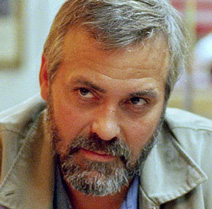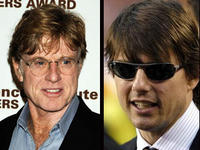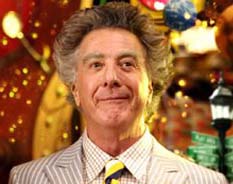![]()
Search
Recent Posts
- ChangingAging.org Redesign -- Please Bookmark!
- Disaster in Buffalo
- Power Up Friday
- Blanchard WinsDays
- Kevin Frick writes...
- Monkhouse Monday
- Getting Closer!
- Blanchard WinsDays
- Power Up Friday
- My Pick for Health and Human Services
- Understanding Health Care Reform
- Facts Are Stubborn Things: Social Security Edition
- Monkhouse Monday
- Localism is Coming
- Krugman Can't Wait...
Recent Comments
- Dorothea Johnson on
No Aging For Old Men - Mimi (MAgS) on
No Aging For Old Men
Category Archives
- AGING 100
- Aging
- Culture
- Dementia
- Eden Alternative
- Erickson School
- Green House
- Health Policy
- Longevity
- Media
- Rockets
Monthly Archives
- February 2009
- January 2009
- December 2008
- November 2008
- October 2008
- September 2008
- August 2008
- July 2008
- June 2008
- May 2008
- April 2008
- March 2008
- February 2008
- January 2008
- December 2007
- November 2007
- October 2007
- September 2007
- August 2007
 Subscribe to this blog's feed
Subscribe to this blog's feed
Announcements

Blog Data
« Thought Crime Bill | Main | I Own This Book »
November 27, 2007 |Permalink |Comments (2)
No Aging For Old Men
A guest-post from the UMBC’s Kavan Peterson:
“That's what some male movie stars would have you believe - though the smart ones use age rather than fight it,” writes Boston Globe film critic Mark Feeney in a sharp review of how aging male movie stars act their age – or not -- in recent films.
Feeney offers a refreshing critique of the responses of Hollywood’s leading men to the inevitability of aging – which range, he says, “from furtive evasion to forthright embrace.” As Feeney rightly argues, Hollywood’s leading men tend to get a free pass when it comes to confronting age. Think Harrison Ford attempting to reprise his role as Indiana Jones at age 65 (that’s not a hypothetical -- we’ll get to see how gracefully Ford plays an aging Indiana Jones in the fourth installment of the franchise in 2008).
Here’s Feeney’s take on aging Hollywood hunks from a few recent films:
Tommy Lee Jones
'Age will flatten a man," Tommy Lee Jones says in "No Country for Old Men." Yes, it will. It can also deepen, strengthen, and enrich him, too. One look at Jones in "No Country" - or in "In the Valley of Elah" - and you see demonstrated the power of age to bring up as well as bear down.
Jones is 61 now, and in those movies the weight of every minute of his time on earth seems recorded on that face. A moonscape of seams, crags, and creases, Jones's visage doesn't look so much lived in as lived on - a spiritual terrain, an Old Testament geology. Even more than that bark of a voice or big-as-Texas presence, that face is what lends Jones his enormous onscreen authority.
George Clooney
You'd think gravitas would be no less a problem for someone as good looking as Clooney. But it isn't. Maybe it's as simple as not reaching for the Grecian Formula. Clooney's letting himself go gray was always a smart career move. He still looked great, but now had the aspect of a regular guy. It made him seem more honest - more serious, too. In "Syriana," he added a thickened waist and unbecoming beard (which made him a dead ringer for New York Times columnist Paul Krugman) and got himself an Oscar.
Clooney looks a lot better in "Michael Clayton," but he does nothing to disguise the effects of the wringer his lawyer-fixer character goes through: a giant lawsuit on the verge of collapse, a friend losing his mind, a very large debt needing urgent settlement. There are bags under the eyes, a puffy face, a general sense that soon enough the mirror will be as much enemy as friend. The movie ends with a very long close-up of Clooney sitting in the back of a taxi, and there's no mistaking that it isn't just the cab's meter that's running.
Robert Redford
Redford is more or less playing his age in "Lions for Lambs." He's a college professor who served in Vietnam, so he has to be at least 60, and probably older. Yet it's as if he's a superannuated Sundance Kid with tenure. The hair is as thick and golden as ever, the handsomeness little touched by the years.
Partly, that's the benefit of great facial structure (it's always the bones that go last). More than that, though, it's a suspiciously unlined dullness around the eyes that makes him look (there's no polite way to put this) weird. Is it Botox? Lighting? Makeup? Nipping and tucking? The strange thing is, in person, Redford's eyes look normal enough. Whatever the reason, their unblemished deadness in "Lions" helps make his performance all the more wooden - and Redford has never exactly been the most expressive of actors.
Tom CruiseUnderscoring the unfortunateness of Redford's unnervingly age-resistant appearance is the presence in "Lions for Lambs" of Tom Cruise. It's a good thing they don't have any scenes together or gerontology might never recover. Playing a very ambitious Republican senator, Cruise is the best thing in the movie - certainly the liveliest. Yet he seems so unbearably young. At 45, he suffers from a terminal boyishness that makes him seem like a can of Red Bull yearning to be a bottle of Bordeaux. The risky business of aging can cut both ways.
Dustin Hoffman
Wonder, if only titular, informs Hoffman's performance as the most aged character seen on screen this or any other season, in "Mr. Magorium's Wonder Emporium." The toy store owner is all of 243. Oddly enough, this isn't Hoffman's first crack at triple figures. Jack Crabb, the Indian-raised Western pioneer he plays in "Little Big Man," lives to be 121. Hoffman was 33 then, yet through the magic of latex he looked old, seriously, deathly, prune-shriveled old. The curious thing about Hoffman as Magorium, a character twice Crabb's age, is that he looks so, well, good. Does the AARP need a new spokesman? Magic will do that for a man, fictional or real - and when it comes to appearance, there's no magic like the movie-star kind.
What do you think? What actors or roles do you think provide a positive portrayal of aging? And what about the double-standard for female actors?
Comments ( 2)
As I read these comments, I was thinking about "what about the female side to this question?" There is most certainly a double-standard at work...for sure. When men have gray hair they look "distinguished". It's the opposite for women and this is not just about women in the media. Professional women know this - just look around you. In the everyday work place, if a woman wants to stay employed and advance in her career, her appearance really matters, as much if not more, than smarts. We must "look the part". Covering the gray is a must (not an option). This is my observation. What do you think?
I am personally fascinated with beautiful, strong, smart women who are showing signs of aging. I often find myself staring at their wrinkles and gray hair. I find it comforting. There is nothing more exciting for me than watching what I call "pure" beauty. Usually, those are women who have understood and accepted their uniqueness and, rather than hiding it (coloring their gray hair or wearing baggy clothes to look slimmer), they have found a tastefully sexy way to accentuate it (using a hair potion of some sort to make the whiteness in their hair even brighter or wearing fitted clothes that brings out their voluptuousness).
I think that we, women, need to stop feeling sorry for ourselves because of the way society perceives our aging. For one thing, I am not so sure that guys really do prefer younger women. Maybe some do, but so what? Everyone should be allowed to have their preferences whether we judge them to be shallow and unfair or not. Besides, I will be honest with you, I kind of enjoyed the attention from guys when I was "younger" and I did not particularly care that they were shallow for liking me for my youth. To judge them now or in the years to come, would be applying a double standard and it's simply not fair.
Most importantly, though, I think that it's our feelings and attitudes about ourselves that make us attractive to other people, not age. Sadly, we, women, tend to be so understanding of everybody else, yet so harsh with ourselves. We take care of everyone else but ourselves. We see beauty in everything and everybody but in ourselves. We have to change this and we have to start now. Here is one idea of how we, women, can begin: Any time you see a woman older than you are that you find beautiful and attractive, take her hand, look her in the eyes and tell her so!

















